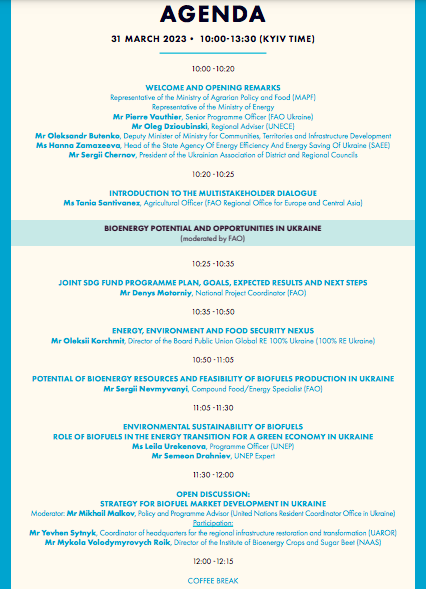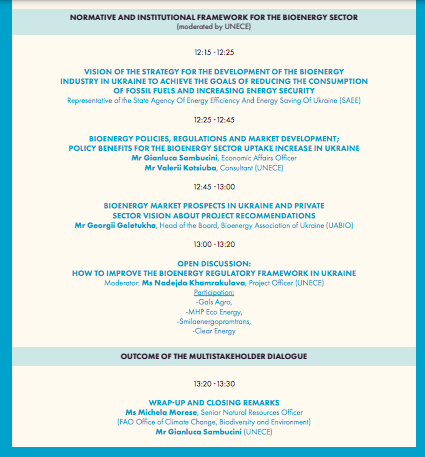Untapped bioenergy potential of Ukraine: comprehensive view of proper use of energy. Issues of energy security and food security
Virtual Event, 31/03/2023

05 July 2019, Kyiv, Ukraine - General view of the freezing line in the refinery at the ?kom??ncern's margarine factory in Kyiv.
©© FAO/Anatolii Stepanov
Ukraine is the largest country in Europe in terms of its territory. An extensive natural gas transmission system (with a capacity of about 150 billion m3 per year) and underground storage facilities designed to store almost 32 billion m3 of natural gas are underutilized and can potentially store the entire existing potential of biomethane production in Ukraine (up to 20 billion m3 per year).
Biomethane production could be carried out at hundreds of biomethane plants throughout Ukraine, which could promote decentralization, create new jobs and generate funds for local budgets, instead of payments having to be made for imported natural gas. In addition, mineral fertilizers could be replaced with organic digestate, a by-product of biomethane plants. In the summer of 2022, the Ministry of Agrarian Policy and Food requested United Nations support to address fuel shortages in the agriculture sector. The request came as fuel and energy resources became increasingly scarce and expensive, impacting agricultural production capacity at all levels.
The Food and Agriculture Organization of the United Nations (FAO), the United Nations Environment Programme (UNEP) and the United Nations Economic Commission for Europe (UNECE) are responding to this request by conducting a three-tiered assessment leading to a full proposal for a demonstration project in the biofuel sector, based on findings of the Joint SDG Fund project on Addressing the compounded food and energy crisis in Ukraine through innovative technologies and adaptive agricultural practices.
This project aims to lay a foundation for greater sustainability and green economic recovery in both the agriculture and energy sectors by analysing the impacts of the current energy crisis and supporting informed decision-making on a suitable bioenergy strategy for Ukraine, considering the social, economic and environmental impacts of the ongoing war.
This multistakeholder dialogue also will feed into further development of renewable energy and energy efficiency strategies and policies to strengthen energy security.
The main objective of this multistakeholder dialogue is to review the key findings of the analysis of available bioenergy potential in Ukraine, discuss key issues, identify priorities and solutions, and propose concrete recommendations for developing a strategy on the production and use of bioenergy resources, in particular biomethane, bioethanol and biodiesel.
The dialogue among key stakeholders will include the identification of possible priorities to achieve food security and accomplish relevant Sustainable Development Goals. The dialogue also may serve as a platform for the exchange of information on existing approaches, challenges and perspectives to the further development of bioenergy and biofuels in Ukraine.


